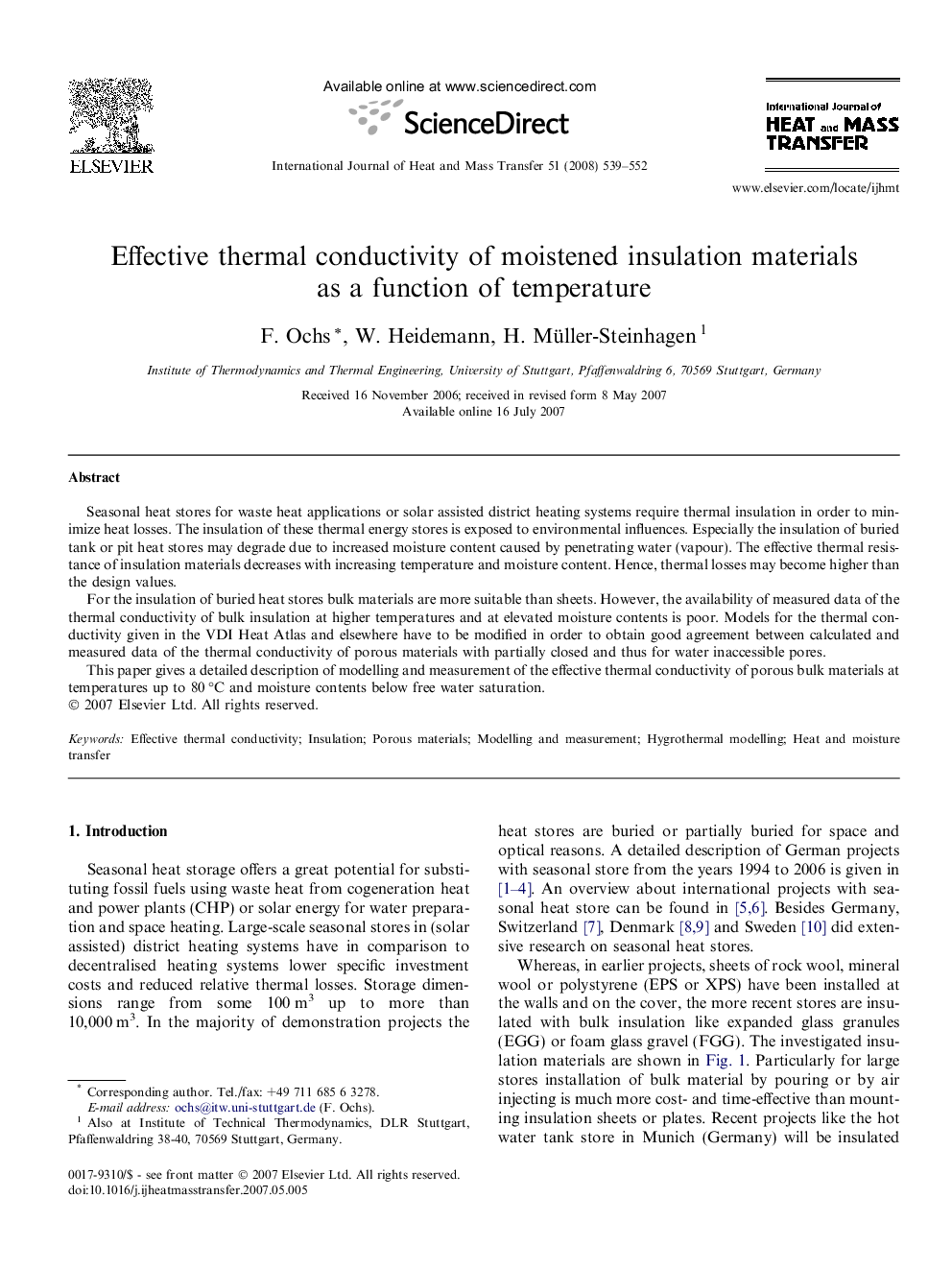| Article ID | Journal | Published Year | Pages | File Type |
|---|---|---|---|---|
| 662888 | International Journal of Heat and Mass Transfer | 2008 | 14 Pages |
Seasonal heat stores for waste heat applications or solar assisted district heating systems require thermal insulation in order to minimize heat losses. The insulation of these thermal energy stores is exposed to environmental influences. Especially the insulation of buried tank or pit heat stores may degrade due to increased moisture content caused by penetrating water (vapour). The effective thermal resistance of insulation materials decreases with increasing temperature and moisture content. Hence, thermal losses may become higher than the design values.For the insulation of buried heat stores bulk materials are more suitable than sheets. However, the availability of measured data of the thermal conductivity of bulk insulation at higher temperatures and at elevated moisture contents is poor. Models for the thermal conductivity given in the VDI Heat Atlas and elsewhere have to be modified in order to obtain good agreement between calculated and measured data of the thermal conductivity of porous materials with partially closed and thus for water inaccessible pores.This paper gives a detailed description of modelling and measurement of the effective thermal conductivity of porous bulk materials at temperatures up to 80 °C and moisture contents below free water saturation.
